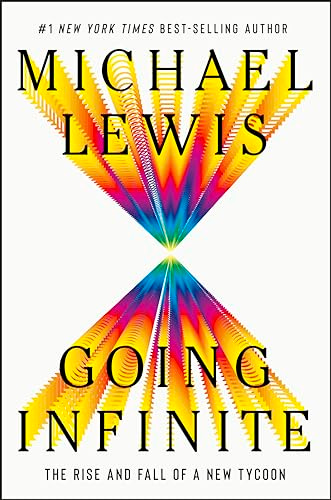Mastering Venture Capital; Global Startups Beating The West; Going Infinite
The Pnyx Podcast
What makes a good investor? And what makes an investor good?
A few weeks ago we released our interview with Ray Dalio, and his new book Principles for Dealing with the Changing World Order: Why Nations Succeed and Fail.
By popular demand, for our third episode of The Pnyx, we are releasing my actual interview with the formidable David Rubenstein, co-founder of The Carlyle Group and author of How to Invest: Masters on the Craft.
We explored the qualities of successful investors and venture capitalists, as well as what qualities make an investor similar to an artist. While this episode deviates from our usual debate format, it offers considerable insights into the world of successful VC investing.
Rubenstein noted that some of the most successful investors often have a few things in common: they challenge conventional wisdom, share blue-collar backgrounds, have great educations, and have a penchant for making the final decision. Join us as we delve into the minds of exceptional investors from an exceptional investor himself.
Taking the opportunity to also reshare an extract of my Forbes column on some of the key takeaways here.
40 tech companies who beat the West.
I loved the initiative by Rest of World. Here are a few reflections:
Homegrown platforms often dominate their own markets vs global players. Uber for example by-and-large was bested by local upstarts like Grab / Gojek in SEA, Ola in India, Careem in the Middle East and DiDi in China. Many models inspired others elsewhere. NAVER Corp in Korea is the best example of a superapp outside China.
Restrictive policies and local complexity in some countries have spurred creative problem-solving. Entrepreneurs find workarounds and build infrastructure where none existed. These create massive opportunities. Vidio for instance built the Netflix of Indonesia focusing on Bahasa language.
As I repeat again and again (perhaps seemingly at nauseam for anyone on my newsletter): the best ideas come from anywhere and scale everywhere. Many of the companies created new categories, some of which dominate here at home. Classic examples like TCMC are well known. I did not know Grammarly was started in Ukraine and Flo Health Inc. in Belarus.
As I discussed in my recent book Out-Innovate: How Global Entrepreneurs - from Delhi to Detroit - Are Rewriting the Rules of Silicon Valley, the future landscape of technology and entrepreneurship will be diverse, distributed and global.
This list is an excellent example of this in action.
Interesting discussions
The first Kauffman Fellows summit held in Africa provided valuable insights into the continent's rapidly developing startup and venture capital ecosystem. Great summary piece on perspectives from global and local investors on the ecosystem (including yours truly). Few notes include interest in talent, lower capital requirements, female representation in startups, etc.
Embedded fintech is seemingly all the rage these days. But what does it mean? One use that I find particularly compelling are vertical operating systems - industry specific software that bundles a range of generalist type offerings into something that works together holistically. And one of the things that makes it all hum is fintech - payments, accounting, checking accounts etc. Great overview on the space and a highlight of the many category players globally below.

Not newsworthy but news nonetheless: the vast majority of NFTs are now worthless. “NFTs, or non-fungible tokens, are a form of crypto asset that is used to certify ownership and authenticity of a digital file including an image, video or text…Two years after tech trend that swept up artists and celebrities, researchers estimate 23 million people hold worthless investments, new report shows.”
My favorite recent quote on Twitter (I can’t find the attribution) was that “Many people I know loudly left San Francisco. Many have quietly come back.”
This definitely rings true to what I’m seeing on the ground. That and a massive disconnect between the apocalyptic hellscape the news might make it seem, versus the more nuanced reality of a city that reacted faster, deeper and much longer to the Covid epidemic, with a workforce that was able to remain remote more easily. The result though has meant difficulties in the downtown but new flourishing elsewhere. San Francisco’s narrative is at stake.
And while I’m a continued believer in the rise of startup ecosystems around the world, this doesn’t mean San Francisco is going away. It certainly hasn’t yet. And if anything, new trends like A.I. have galvanized the ecosystem.

Book of the Month
It would be hard not to make this month’s book Michael Lewis’ incredibly timely and just released book: Going Infinite: The Rise and Fall of a New Tycoon.
I’m halfway through so will reserve an opinion for now. However, I’ll leave you with this in-depth review from the New York Times for now.
![[99%Tech]](https://substackcdn.com/image/fetch/$s_!Vpj7!,w_40,h_40,c_fill,f_auto,q_auto:good,fl_progressive:steep/https%3A%2F%2Fsubstack-post-media.s3.amazonaws.com%2Fpublic%2Fimages%2F288cd65c-980f-4acb-8182-1853ec1e444d_1280x1280.png)


